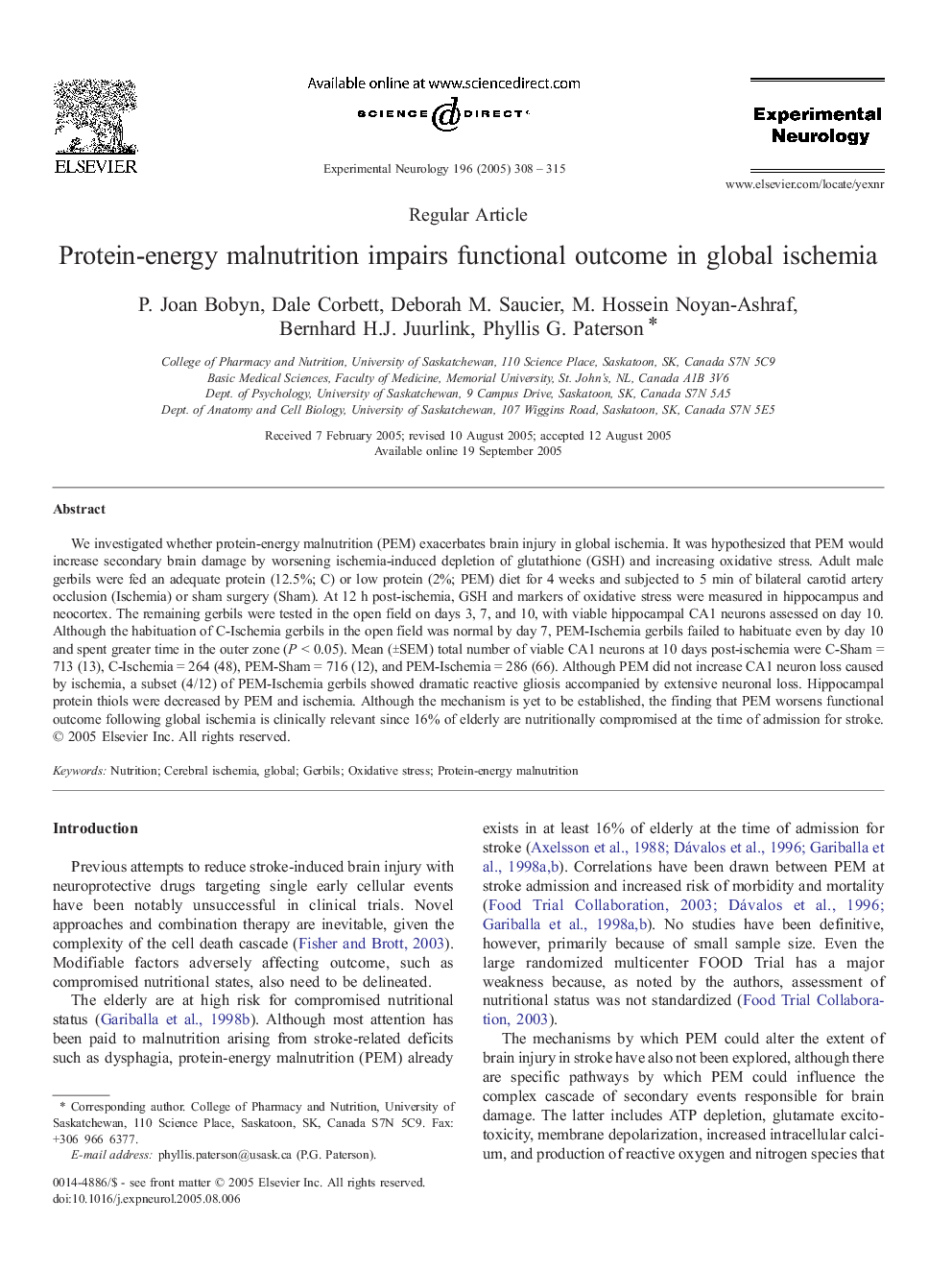| Article ID | Journal | Published Year | Pages | File Type |
|---|---|---|---|---|
| 9191909 | Experimental Neurology | 2005 | 8 Pages |
Abstract
We investigated whether protein-energy malnutrition (PEM) exacerbates brain injury in global ischemia. It was hypothesized that PEM would increase secondary brain damage by worsening ischemia-induced depletion of glutathione (GSH) and increasing oxidative stress. Adult male gerbils were fed an adequate protein (12.5%; C) or low protein (2%; PEM) diet for 4 weeks and subjected to 5 min of bilateral carotid artery occlusion (Ischemia) or sham surgery (Sham). At 12 h post-ischemia, GSH and markers of oxidative stress were measured in hippocampus and neocortex. The remaining gerbils were tested in the open field on days 3, 7, and 10, with viable hippocampal CA1 neurons assessed on day 10. Although the habituation of C-Ischemia gerbils in the open field was normal by day 7, PEM-Ischemia gerbils failed to habituate even by day 10 and spent greater time in the outer zone (P < 0.05). Mean (±SEM) total number of viable CA1 neurons at 10 days post-ischemia were C-Sham = 713 (13), C-Ischemia = 264 (48), PEM-Sham = 716 (12), and PEM-Ischemia = 286 (66). Although PEM did not increase CA1 neuron loss caused by ischemia, a subset (4/12) of PEM-Ischemia gerbils showed dramatic reactive gliosis accompanied by extensive neuronal loss. Hippocampal protein thiols were decreased by PEM and ischemia. Although the mechanism is yet to be established, the finding that PEM worsens functional outcome following global ischemia is clinically relevant since 16% of elderly are nutritionally compromised at the time of admission for stroke.
Related Topics
Life Sciences
Neuroscience
Neurology
Authors
P. Joan Bobyn, Dale Corbett, Deborah M. Saucier, M. Hossein Noyan-Ashraf, Bernhard H.J. Juurlink, Phyllis G. Paterson,
